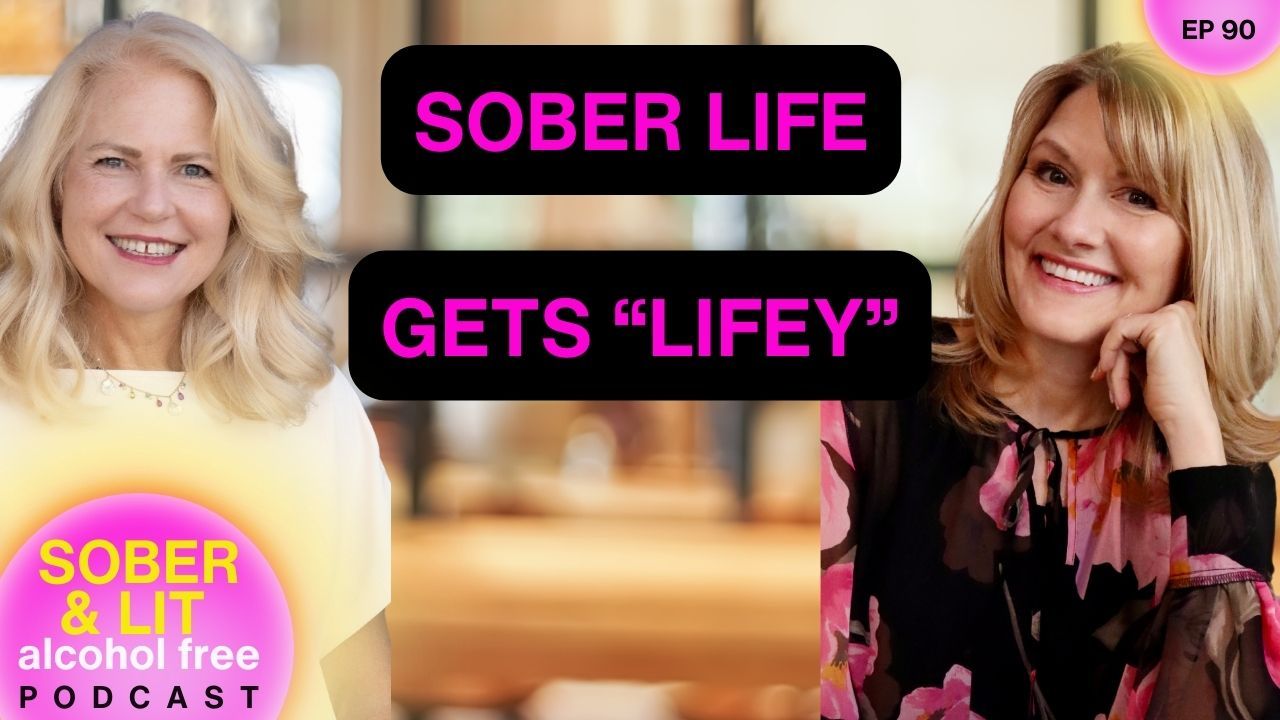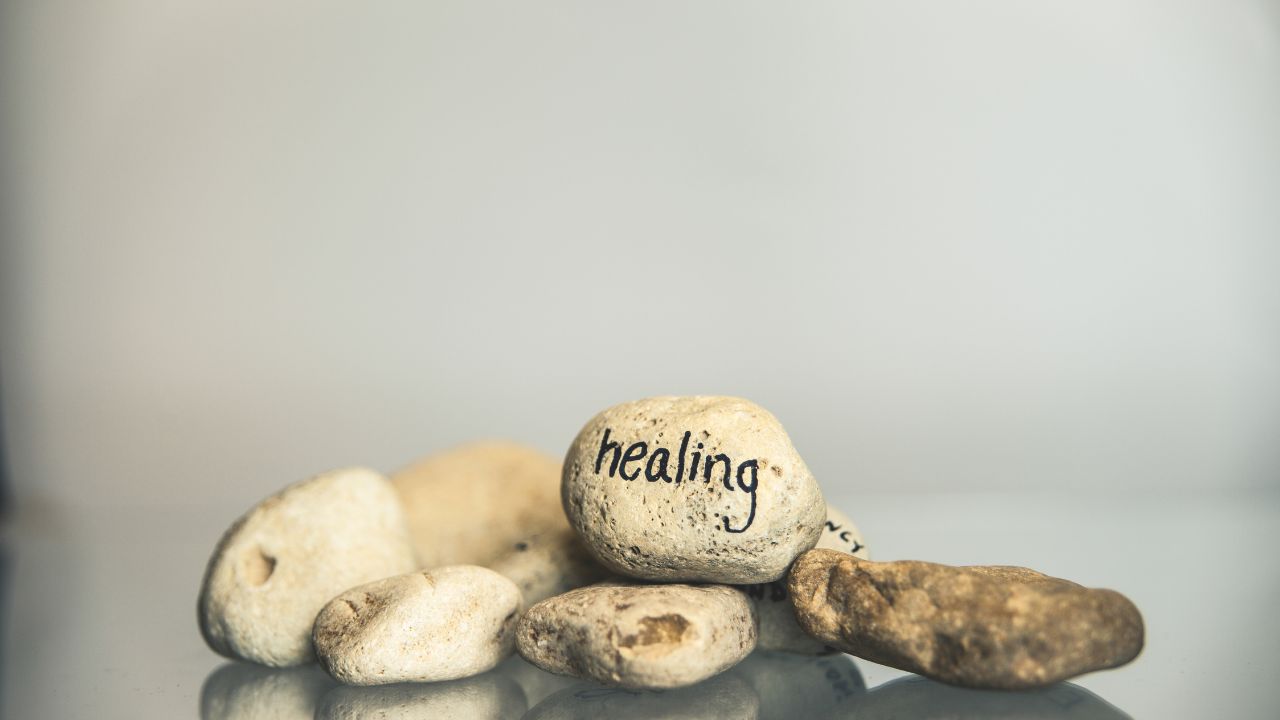Ep. 90 Why isn’t my life magically perfect now that I’m sober? When Life Gets “Lifey”
Sep 30, 2025
Listen to the PODCAST Here
Watch the Podcast on YouTube Here
Life Beyond the Bottle: Navigating Emotional Sobriety and Everyday Struggles
Crossing the finish line and putting down the drink is a huge accomplishment—one worthy of celebration. But as Susan Larkin and Ruby Williams of the "Sober and Lit" podcast remind us in their milestone 90th episode, life without alcohol doesn’t transform every moment into rainbows and sunshine. The challenges, stress, and drama of daily living don’t disappear; instead, sobriety provides a new lens for dealing with them.
Many newly sober individuals feel disillusioned when life continues to “get lifey.” They wonder, “What’s wrong with me? Shouldn’t things be better now?” Ruby and Susan reassure their listeners: struggles are part of the human condition—sobriety just allows us to approach them with fresh tools and a clearer mind.
Emotional Sobriety: The Real Work Starts Here
Sobriety isn’t just about quitting alcohol. Emotional sobriety—the ability to meet life’s ups, downs, and uncertainties with resilience and grace—becomes the ongoing project. As the hosts discuss, the feelings and issues previously masked by drinking don’t vanish. Instead, they often surface more clearly, demanding attention and care.
Susan shares her own post-sobriety challenges, struggling with fear and uncertainty after retiring from a long-held career. The financial instability and identity shifts that followed brought a wave of anxiety—a stark reminder that triggers and struggles still arise. The difference? Instead of numbing out, she now uses somatic practices, self-inquiry, affirmations, and nervous system regulation techniques to foster healing and growth.
Ruby echoes the sentiment, noting that her brain often seeks comfort in new forms of numbing, like solitaire or binge-watching TV. This “whack-a-mole” effect is common; replacing one coping mechanism with another doesn’t mean failure—it’s simply part of the journey. Awareness, experimentation, and self-compassion are key in choosing healthier practices.
Curating Your Toolkit: Finding What Works for You
The notion that there’s a perfect set of sobriety rituals is a myth. The pressure to meditate, do yoga, journal, walk, ground, and perform a host of daily self-care tasks can be overwhelming. Susan and Ruby advocate for simplicity and self-tailoring—they urge listeners to experiment, see what brings genuine relief or joy, and let go of rigid perfectionism.
Habit stacking, bullet journaling, or even embracing the “daily-ish” mentality (practicing regularly, but not obsessively) can all be equally valid. The point is not to “get good” at meditation or any particular activity, but to get better at life. Just one or two grounding tools, done consistently and with intention, can generate profound shifts over time. And if a tool no longer fits, it’s okay to pivot and try something new.
Relationships, Self-Compassion, and Lifelong Growth
Quitting alcohol often prompts the next big challenge: navigating relationships. The work of repairing marriages, mending family ties, and reparenting oneself is lifelong. Ruby highlights the emotional labor of moving through heartbreak, disappointment, or regret—experiences that won’t magically cease just because we’re sober. But therapy, especially when approached alcohol-free, becomes more effective, allowing for deeper processing and real change.
Above all, Susan and Ruby stress the crucial role of self-compassion. Old habits of self-criticism or perfectionism may resurface, but sobriety offers an opportunity to interrupt these patterns with grace. Celebrating small wins—five walks a week, most days alcohol-free, an honest conversation with a loved one—helps to build sustainable progress.
Building a Sustainable Sober Life
"Sober and Lit" underscores a powerful truth: there’s no arrival point in sobriety. It’s a journey marked by ongoing self-discovery, emotional work, and gentle self-forgiveness. Tools, community support, and willingness to keep showing up—no matter how many “lifey” roadblocks appear—are the foundation of authentic, vibrant living.
For anyone navigating sobriety, remember: you’re not alone, you’re not doing it wrong, and there is no “there” to finally reach. It’s a path of daily choices and, ultimately, deeper connection—to self, to others, and to the full spectrum of real, human experience.
______
Ruby Williams at Freedom Renegade Coaching https://www.freedomrenegadecoaching.com/
Follow Coach Ruby: @rubywilliamscoaching
Email: [email protected]
Grab your copy of our FREE WineFree Weekend Guide to help you on your alcohol free journey. https://www.freedomrenegadecoaching.com/WineFreeWeekend
